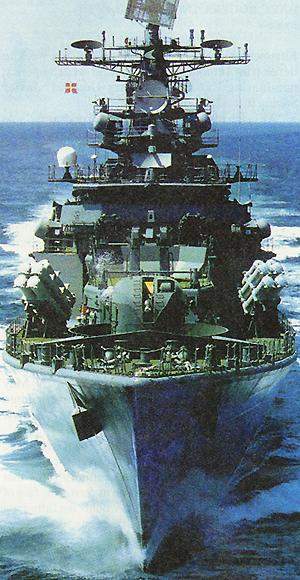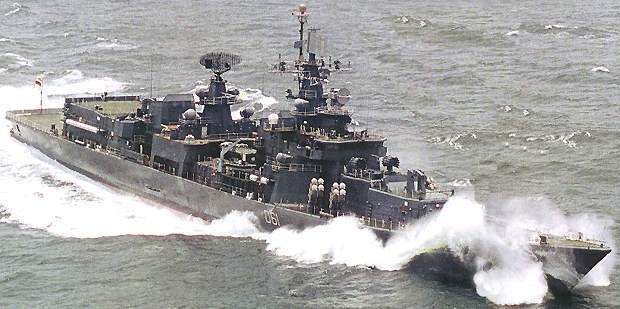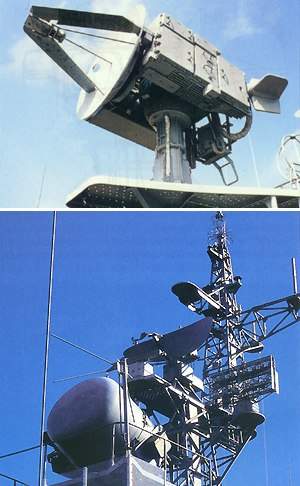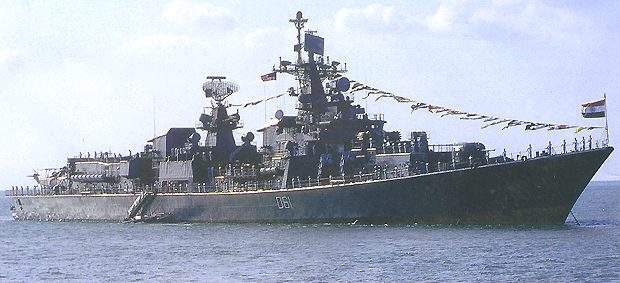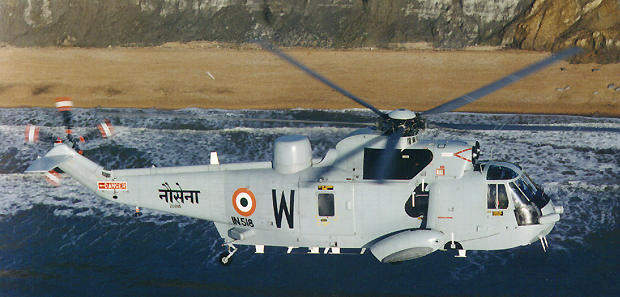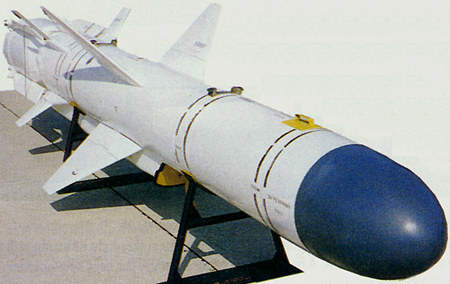Three Delhi Class destroyers were built for the Indian Navy by Mazagon Dock based in Mumbai, under the Project 15 programme. The Delhi destroyer was designed by the Indian Navy with the detailed and production design phase carried out by Mazagon Dock. INS Delhi was commissioned in 1997, INS Mysore in June 1999 and INS Mumbai (formerly Bombay) in January 2001.
With a displacement of 6,700t, overall length of 163m and beam of 17m, the Delhi Class is the largest warship built in India. The ship is fitted with sophisticated anti-ship, anti-aircraft and anti-submarine sensor and weapon systems.
Weapons
The ship’s integrated combat data system is supplied by Bharat Electronics Ltd (BEL) of Hyderabad.
The main gun at the bow of the ship is a 100mm gun supplied by Russia. The ship is also fitted with four six-barrel AK 650 gatling guns.
The ship is equipped with four quad launchers for the Uran anti-ship missile system. The Uran system launches the Kh-35 (Nato designation SS-N-25) antiship cruise missile, which uses an inertial guidance system to steer the missile towards the target area and an active radar homing head for terminal guidance. The minimum and maximum ranges of the missile are 5km and 130km.
The surface-to-air missile system is the Russian Shtil (SA-N-7), known by the Nato reporting name Gadfly. The missile’s maximum range is 25km. It was envisaged that this would be replaced with the Trishul surface-to-air missile system, which had a range of 500m to 9km and a 15kg warhead. In December 2006, the Indian MoD stopped the research and development of Trishul and focused on developing the Barak defence missile system.
Despite a successful series of firing trials in June 2003, technical problems have put the future of the missile system in doubt.
INS Delhi, INS Mysore and INS Mumbai are fitted with the Rafael Barak point air defence missile system. Barak has an eight-cell vertical launch system and the missile command-to-line-of-sight (CLOS) radar guidance with a range from 500m to 10km. INS Mumbai is being fitted with the missile system.
The Type 15 destroyers will be modified to equip with BrahMos supersonic cruise missiles. BrahMos is developed by BrahMos Aerospace, a joint venture of Defence Research and Development Organisation (DRDO) of India and the Federal State Unitary Enterprise NPO Mashinostroyenia (NPOM) of Russia.
The ship has a quintuple 533mm torpedo launcher which can also be used to launch SS-N-15 Starfish or possibly SS-N-16 Stallion ASW missiles. SS-N-15 has a maximum range of 50km, SS-N-16 of 120km.
The ship also has two RBU-6000 anti-submarine rocket launchers with 12 tubes. Range is 6km and the maximum engagement depth is 500m.
Helicopters
The 500m² helicopter deck is located at the stern of the ship. The ship can support two helicopters, the new Dhruv advanced light helicopter (ALH) or Chetak helicopter, by Hindustan Aeronautics Ltd (HAL) and the AgustaWestland Sea King helicopters, primarily equipped for the air surveillance role.
The Sea Kings carry the Super Searcher radar from MEL, the H/S-12 dipping sonar from Thales Underwater Systems with an AQS-902B acoustic processor, and the Hermes electronic support measures system supplied by BAE Systems. The Sea King is also armed with mines and Sea Eagle missiles.
Countermeasures
The ship is equipped with four chaff launch systems and the Ajanta radar interceptor developed by BEL of Bangalore. The TQN-2 jamming system is supplied by the Italian company, Elettronica.
Sensors
The ship’s radar suite includes Rashmi I-band navigation radar by Bharat Electronics, Russian Kite Screech and Bass Tilt H,I and J band fire control radars for the guns, Garfun B fire control radar for the Kh-35 Uran SSM, Front Dome fire control radar for the SA-N-17 SAM, RALW – LW08 air search radar operating in D-band and supplied by Bharat Electronics Ltd and Thales Nederland (formerly Signaal) and the Bharat / Thales RAWS – DA05 E-band surface search radar.
The ship’s hull mounted active search sonar capability is based on the TSM2633 by Thales Underwater Systems or the APSOH by Bharat.
The Delhi Class also has a variable depth sonar, Model 15-750 developed and manufactured in India by Indal and Garden Reach.
Propulsion
The ship’s propulsion is based on a combined diesel and gas CODAG system. The Russian gas turbine system is the AM-50. The KVM-18 diesel motors are supplied by Bergen and Garden Reach. The propulsion system drives two shafts and provides a maximum speed of 28kt.

